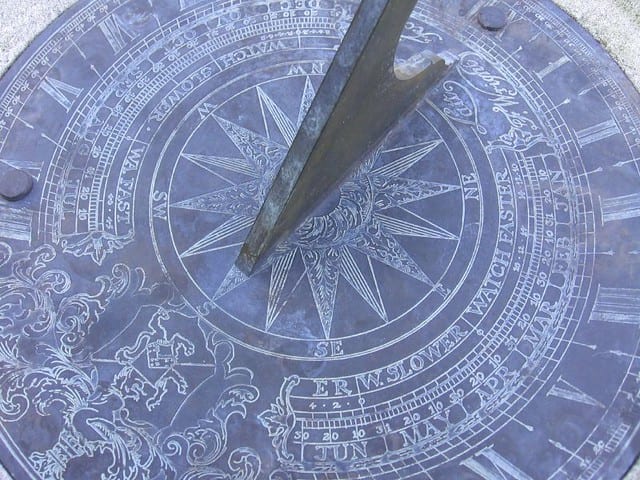
Giving Each Action Its Own Time
It begins before I lift my head from the pillow each morning.
There are so many things which demand my attention and need to be done. Personal things, like shaving and taking a shower. Breakfast, which leads inevitably to speculating about lunch. Work things; I need to call her, email them, finish that, and meet with him. Every once in a while, I need to think my way through something, or even write a little bit.
It is becoming more and more difficult to give each action its own time.
We hold ourselves responsible to do so many different things, and do them all well. Most of us also surround ourselves with enticing distractions. “I can work on that if I do it during the game. Maybe at halftime.”
Many of us want to do it all. Not only do we want to work on everything, we want to do it now without making any mistakes.
In the process, we sacrifice the quality of our experiences to gain quantity. We push ourselves to do more, never knowing the joy of paying attention and learning to work on things as well as we can. It is as if we do not really want to learn or gain experience, we just want to get more finished.
When I work on what I love to do, everything else fades out of my sight. I am not distracted, but drawn into what I am doing. I do not regret missing all the other things I could be doing.
Maybe we are doing too many things we do not love.
How can we change the way we live to give each of our actions its own time? What steps can we take to give ourselves opportunities to reflect before we act?
Monastic Time Practices
We see ourselves as the masters of our own schedules. We can adjust our appointments on all our devices with the touch of a fingertip.
Whether working or taking a trip, we try to make our days as productive as we can. We try to squeeze more things into our schedules in an effort to squeeze more out of them.
Time is money, and we want ours to be as profitable as it can be.
The monks I know have a different set of time practices with other priorities. Most of the monks I know do not wear watches or have iPhones with their calendars on them. I cannot think of a single clock at New Camaldoli Hermitage.
They are not concerned with wringing every nickel out of every moment of every day.
Monastic time management values balance more than focused productivity. There is work to be done, which is important to complete, and there is time in which to do it. Some of the work monks do is physical or intellectual labor. Monks also spend time doing liturgy, the work of the people. They also take time each day for reflection and rest.
Monks live in community. It is not only important for each monk to manage their days well. The health and strength of the community rely on it as well. The community’s hospitality and worship, as well as its financial viability, depend on its schedule. When the bell rings for a prayer service, that is the community’s priority.
Monastic time practices are about putting values into practice, practicing what we preach.
We try to squeeze every task we possibly can into each moment. Monks are more focused on finding the purpose in each moment.
What can we learn from monastic time practices?
Making the Most of Our Time
Some of us believe we can make time work harder by stacking our actions on top of each other.
We like to think we are saving time by multitasking, forcing each moment to carry more and more effort.
It is as if we are think we will enjoy our meal more by trying a forkful of everything on the table all at once. We apparently believe we can read more books by having five or six or more of them open in front of us at the same time.
Appreciating a great meal or book is about quality, not quantity. Making the most of our time works the same way.
We want to savor the moments we have the same way we would our favorite food or dessert or a new book.
It is easy for us to forget our lives are voyages of exploration and discovery, not work projects.
The monks I know are not focused on getting as much done as they can. Their work fits into the monastic schedules of their days.
Making the most of their time is about finding what they love in each part of their schedules.
Time and Timelessness
There are things we need to do regardless of whether we love to do them. Most of us have other people telling us what to do and how to do it.
Monastic time practices are not about only doing what we know we love to do. The schedules of Benedictine monasteries are designed to help members of the community find balance while doing what needs to be done.
Working on something I love is one way for me to get beyond time and experience timelessness. It is a challenge for me to do work I love with an eye on the clock or my schedule.
Even doing the things we do not love to do can be a window into timelessness.
I have been known to turn work I do not love into something more playful. It is not a competition to see who is the best or the fastest. We can turn work into play by finding a way to appreciate it in a different way.
When we give each of our actions its own time we overcome our resistance and appreciate its value.
When will we experience timelessness in our time today?
How can we follow monastic time practices this week?
[Image by mayrace]
Greg Richardson is a spiritual life mentor and coach in Southern California. He is a recovering attorney and a lay Oblate with New Camaldoli Hermitage near Big Sur, California. Greg’s website is StrategicMonk.com and his email address is [email protected].












